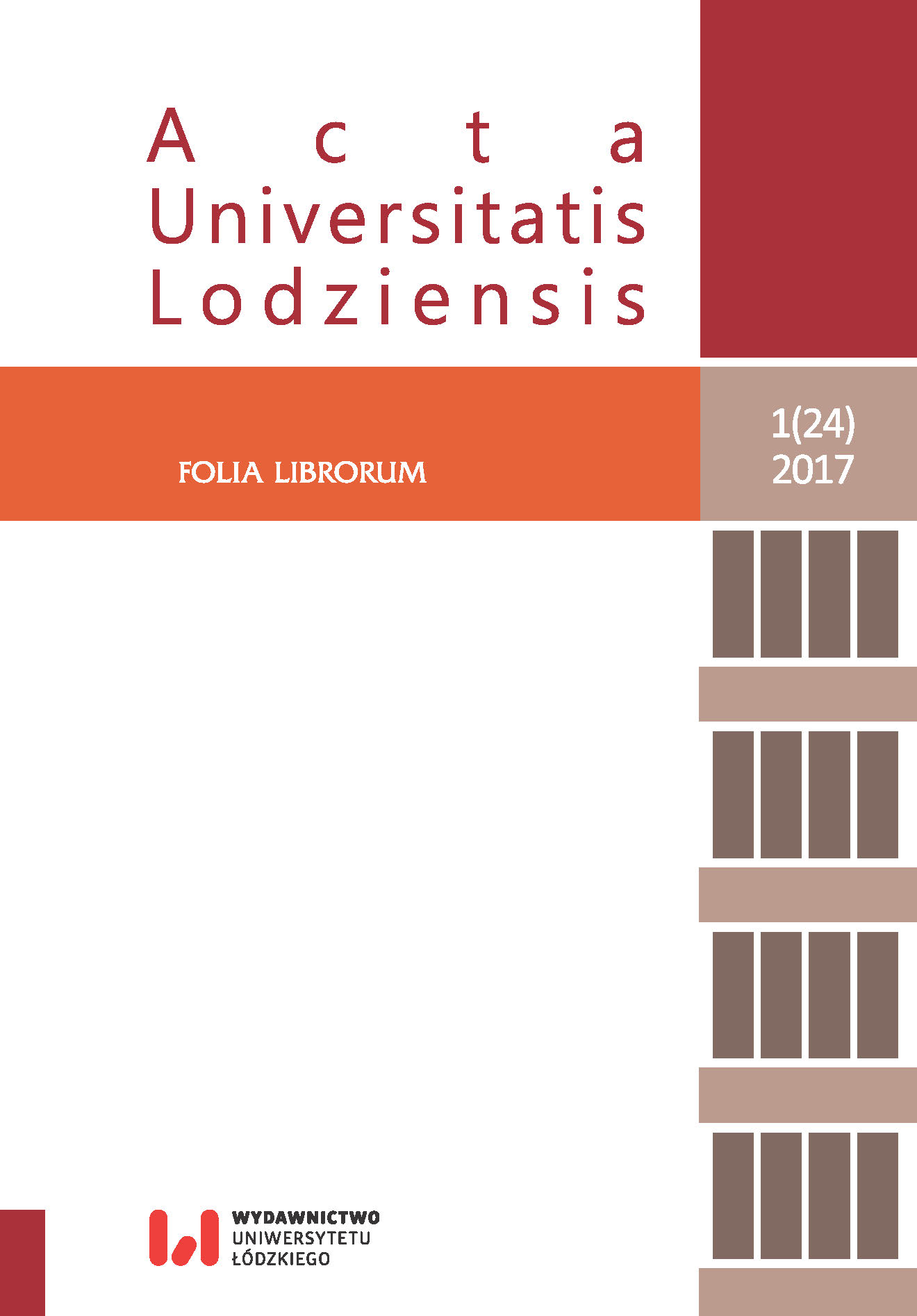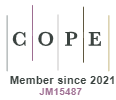Znaczenie użytkowania bibliotek i potrzeba kultury czytania
DOI:
https://doi.org/10.18778/0860-7435.24.07Słowa kluczowe:
alfabetyzacja, kultura czytelnicza, bibliotekiAbstrakt
Biblioteki są bardzo ważne dla informacji, komunikacji i transformacji. Pomagają wpajać kulturę czytelniczą, tak istotną dla progresywnego rozwoju ludzkiego życia. Redukują ignorancję, a zatem wspierają alfabetyzację, wiedzę oraz nabywanie umiejętności. W celu przeprowadzenia analizy autorzy zastosowali metodologię wyszukiwania literatury. Poniższy artykuł pozwala uzyskać wgląd w kulturę czytelniczą różnych narodów oraz ilustruje rolę bibliotek w promowaniu czytelnictwa oraz środowiska efektywnego czytania w społeczeństwie. Autorzy mają również na celu poprawienie kultury czytelniczej różnych narodów poprzez zaprezentowanie swojego kraju jako studium przypadku. Artykuł wykazuje, że zakładanie klubów czytelniczych, ożywianie edukacji w szkole poprzez biblioteki elektroniczne, promocja czytania i książek w mediach są czynnikami mogącymi poprawić wskaźniki czytelnictwa.
Pobrania
Bibliografia
Adeoye, Moses O. & Popoola, Sunday O. (2011). Teaching Effectiveness, Availability, Accessibility, and Use of Library and Information Resources Among Teaching Staff of Schools of Nursing in Osun and Oyo State, Nigeria [online]. Retrieved from: http://www.webpages.uidaho.edu/~mbolin/adeoye-popoola.htm
Google Scholar
Agbama, Desmond (2014). Need to Promote Reading Culture. The Nigerian Observer [online]. January, 20, p. 14. Retrieved from: https://issuu.com/nigerian_observer/docs/nigerian_observer_20-01-2014
Google Scholar
Aina, Adebowale J. & Okusaga, Tajudeen O. & Taiwo, Adebowale & Ogundipe, Titilayo C. (2011). The Role of Library in Promoting Reading Habits Among Nigerians. Journal of Research in Education and Society, 2, 1, 168.
Google Scholar
Akindele, Nadia (2012). Reading Culture, Parental Involvement and Children’s Development in Formative Years: The Covenant University Experience. Library Philosophy and Practice [online]. 29.09.2012, DigitalCommons@University of Nebraska – Lincoln, US. Retrieved from: http://digitalcommons.unl.edu/cgi/viewcontent.cgi?article=1995&context=libphilprac
Google Scholar
Bature, R. (2011). Impact of Information Communication Technology (ICT) on Reading Culture. In: Book Industry, Technology and the Global Economic Trend in the 9th and 10th Nigeria International Book Fair, National Book Fairs and NPA General Meeting of 2011.
Google Scholar
Busayo, Isaac O. (2011). The School Library As a Foundational Step To Children’ Effective Reading Habits. Library Philosophy and Practice [online]. Retrieved from: http://www.webpages.uidaho.edu/~mbolin/busayo-reading.htm. Also available in PDF: http://unllib.unl.edu/LPP/busayo-reading.pdf
Google Scholar
Dilworth, Diana (2014). Which Countries Spend the Most Time Reading. Retrieved from: http://www.adweek.com/galleycat/which-countries-spend-the-most-time-reading/84225
Google Scholar
Elkin, Susan (2007). Encouraging Reading: Ideas Action. London: Network Continuum Education.
Google Scholar
FG launches fresh nationwide ‘Read Campaign’ (2017). Nigerian News360 [online]. June, 1. Retrieved from: https://www.nigerianews360.com/fg-launches-fresh-nationwide-readcampaign/
Google Scholar
Futalib (2015). Definition of Library Forms of Recorded Information. Retrieved from: https://futalib.wordpress.com/2015/02/26/topic-1-2-definition-of-library-forms-ofrecorded-information/
Google Scholar
ICET 2013 World Assembly: 57th World Assembly, Innovation and Trends in Education (2013). Retrieved from: http://www.icet4u.org/docs/ICET2013Yearbook.pdf
Google Scholar
Igwe, Kingsley N. (2011). Reading Culture and Nigeria’s Quest for Sustainable Development. Library Philosophy and Practice [online]. Retrieved from: http://unllib.unl.edu/LPP/igwe2.htm
Google Scholar
Ilogho, J. E. (2011). The Rising Population of Aliterates in Nigerian Schools: Role of School Libraries. Library Philosophy and Practice [online]. Retrieved from: http://digitalcommons.unl.edu/cgi/viewcontent.cgi?article=1727&context=libphilprac
Google Scholar
Itedjere, Andrew O., Achugbue, Edwin I., Sokari Uwuma (2012). The Significance of the Library in Technology Education Institutions in Sustainable Youth Empowerment: An Overview. International Journal of Library Science [online], 1(2), 19–22. Retrieved from: http://article.sapub.org/10.5923.j.library.20120102.01.html
Google Scholar
Krolak, Lisa (2005). Role of Libraries in the Creation of Literate Environments. United Nations Educational Scientific and Cultural Organization Paper commissioned for the EFA Global Monitoring Report 2006, Literacy for Life. Retrieved from: http://www.ifla.org/files/assets/literacy-and-reading/publications/role-of-libraries-increation-of-literate-environments.pdf
Google Scholar
Literate Brazil Programme (Programa Brasil Alfabetizado, PBA) [online]. Retrieved from: http://litbase.uil.unesco.org/?menu=4&letter=L&programme=50
Google Scholar
The National Policy on Education 6th Edition (2013). [online]. Retrieved from: https://educatetolead.wordpress.com/2016/02/22/national-policy-on-education-6th-edition-2013/
Google Scholar
Ode, Elijah O. (2014). Evolving Reading Culture and Readership Promotion Among the Nigeria Youth. Retrieved from: https://archive.org/stream/4.AppliedEvolvingReadingCultureElijahOjowuOdePhD/4.%20Applied-Evolving%20Reading%20Culture-Elijah%20Ojowu%20Ode,%20PhD_djvu.txt
Google Scholar
Owolabi, O. (2010). What you Need to Know About the Library with 100 Questions and Answers. Lagos: The Nehemiahs Rebuilding.
Google Scholar
Paulo, Sao (2006). Brazil: A nation of non-readers; A strange and costly disregard for books [online]. Retrieved from: http://www.economist.com/node/5636369
Google Scholar
Wilk, Paulina (2014). Warsaw’s Big Book Festival: Leading Poland’s Reading Revolution [online]. Retrieved from: http://theculturetrip.com/europe/poland/articles/warsaw-sbig-book-festival-leading-poland-s-reading-revolution/
Google Scholar
Wongrujira, Monwipa (2013). Bangkok World Book Capital 2013: How does it Promote Reading Culture? ICET 2013 World Assembly: 57th World Assembly, Innovation and Trends in Education. Retrieved from: http://www.icet4u.org/docs/ICET2013Yearbook.pdf
Google Scholar
Pobrania
Opublikowane
Jak cytować
Numer
Dział
Licencja

Utwór dostępny jest na licencji Creative Commons Uznanie autorstwa – Użycie niekomercyjne – Bez utworów zależnych 4.0 Międzynarodowe.










